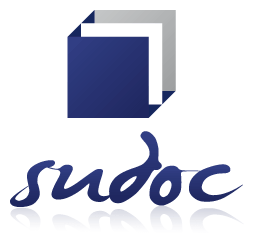Optimization of waste management system and smart garbage collection in large commercial and entertainment complexes with the Internet of Things (Case study: Iran Mall Shopping Center, Tehran)
DOI:
https://doi.org/10.63053/ijset.128Keywords:
Internet of Things, waste management optimization, smart waste collection, artificial intelligence methodAbstract
One of the biggest problems we face in the world today is waste management. Looking at the available statistics, it is predicted that the volume of waste generated in the world by 2050 will reach 3.40 billion tons. Many countries are currently looking at how to recycle this amount of waste. One of the most challenging aspects of managing any city or community is managing the waste generated by consumers, businesses and the public sector. This volume of waste includes 230 million tons of waste and disposable materials each year. While specific efforts to reduce the use of some of the materials used in packaging products may ultimately reduce the amount of waste generated over time, all societies continue to produce waste and will continue to do so. Waste is defined as a combination of recyclable materials, materials destined for landfills and materials that must be carefully disposed of according to their contents.
Managing this waste has traditionally been a manual process, but artificial intelligence (AI) is being used in some communities to reduce the human labor required for this task and, consequently, reduce the costs associated with waste management and processing. By combining a variety of technologies, including machine learning (ML), deep learning (DL), and computer vision, a number of solutions have been proposed that are likely to improve efficiency and productivity in waste management.
References
Hosseini, Seyed Ali; Rezvanfar, Ahmad; and Maleki, Arman. (2013). Challenges and Solutions for Implementing Smart Urban Waste Management in Metropolises: A Case Study of Tehran. Quarterly Journal of Urban and Rural Management, 12(45), 87-105.
Rezaei, Maryam; and Akbari, Hossein. (2013). Technical and Economic Feasibility of Using Smart Trash Cans in Urban Areas (Case Study: District 2 of Mashhad Municipality). Journal of Environmental Research, 15(3), 112-128.
Sadeghinia, Mohsen; Jafari, Parisa; and Esmaeili, Ramin. (2013). The Role of Information Technology in Optimizing Reverse Logistics and E-Waste Management in Large Industries. Quarterly Journal of Logistics and Supply Chain Research, 5(2), 44-59.
Norouzi, Fatemeh; and Ghasemi, Javad. (2013). Investigating the factors affecting the acceptance of smart city technologies by citizens with a focus on waste management services. Quarterly Journal of Urban Sociology, 11(1), 155-178.
Karimi, Davoud; and Mohammadpour, Sara. (1403). Presenting a conceptual model for integrated waste management in large residential complexes using the Internet of Things. Journal of Civil and Environmental Engineering, 53(1), 77-91.
Sadeghi, Parviz; Ahmadi, Leila; and Mohammadi, Kazem. (1401). Challenges of waste management in large commercial complexes and new solutions. National Conference on Waste Management and Environment, Tehran, Iran.
Ahmadi, Zahra; and Ghasemi, Reza. (1402). Evaluation of traditional waste collection systems in shopping malls and presentation of an improvement model. Quarterly Journal of Urban Studies, 9(32), 65-80.
Rahimi, Behzad; Naderi, Mona; and Alizadeh, Hassan. (1401). The Role of Smart Waste Management in Sustainable Urban Development. Proceedings of the National Smart City Conference, Isfahan, Iran.
Abdollahi, Fereshteh; and Mohammadi, Jafar. (1402). Cost-benefit analysis of implementing smart waste collection systems in large organizations. Quarterly Journal of Urban Economics and Management, 7(25), 30-45.
Araújo, F. P., Oliveira, H. R., & Costa, J. B. (2023). Machine learning algorithms for waste generation forecasting and route optimization in smart cities: A Brazilian case study. Waste Management, 165, 123-135.
Chen, L., & Wang, Q. (2024). Performance evaluation of an IoT-based waste management system in a high-traffic commercial district of Shanghai. Journal of Cleaner Production, 435, 130125.
Gupta, A., Singh, R., & Kumar, S. (2023). IoT for smart waste management: A comprehensive review of technologies, challenges, and future directions. Sustainable Cities and Society, 92, 104487.
Lee, S., & Park, J. (2023). Cybersecurity and privacy challenges in IoT-based smart waste collection systems. IEEE Internet of Things Journal, 10(15), 13470-13485.
Li, M., & Chen, X. (2023). An integrated IoT platform for real-time monitoring and dynamic scheduling in municipal solid waste management. Environmental Science and Pollution Research, 30(20), 58701-58715.
Parker, J., Davis, L., & Miller, S. (2023). User acceptance and adoption of smart waste management technologies: A socio-technical perspective. Technology in Society, 73, 102201.
Patel, R., & Sharma, V. K. (2023). A comparative study of smart waste management systems in large shopping malls: Cases from India and UAE. Resources, Conservation and Recycling, 190, 106834.
Rodrigues, M., & Silva, C. (2024). Design and implementation of an IoT cloud platform for hospital waste monitoring and management. International Journal of Medical Informatics, 182, 105250.
Rogers, P., & Smith, K. (2022). Scalability challenges for IoT waste management solutions in mega-complexes. Proceedings of the IEEE International Conference on Smart Computing (SMARTCOMP), 215-220.
Smith, J., Brown, A., & Wilson, C. (2023). The impact of human and social factors on the success of smart waste management projects: A global perspective. Journal of Environmental Management, 329, 117050.
Thomson, G., Williams, D., & Davis, P. (2022). Optimizing waste collection logistics in large commercial venues using IoT-driven data analytics. Expert Systems with Applications, 195, 116543.
Zhang, Y., & Liu, H. (2024). A mixed-methods approach to evaluating IoT-based smart waste management effectiveness in urban environments. Computers, Environment and Urban Systems, 108, 102077.
Kumar, A., & Singh, P. (2023). Smart waste management: A critical review of IoT applications, challenges, and research agenda. Wireless Personal Communications, 130(2), 987-1015.
Downloads
Published
How to Cite
Issue
Section
License
Copyright (c) 2025 Authors

This work is licensed under a Creative Commons Attribution 4.0 International License.












